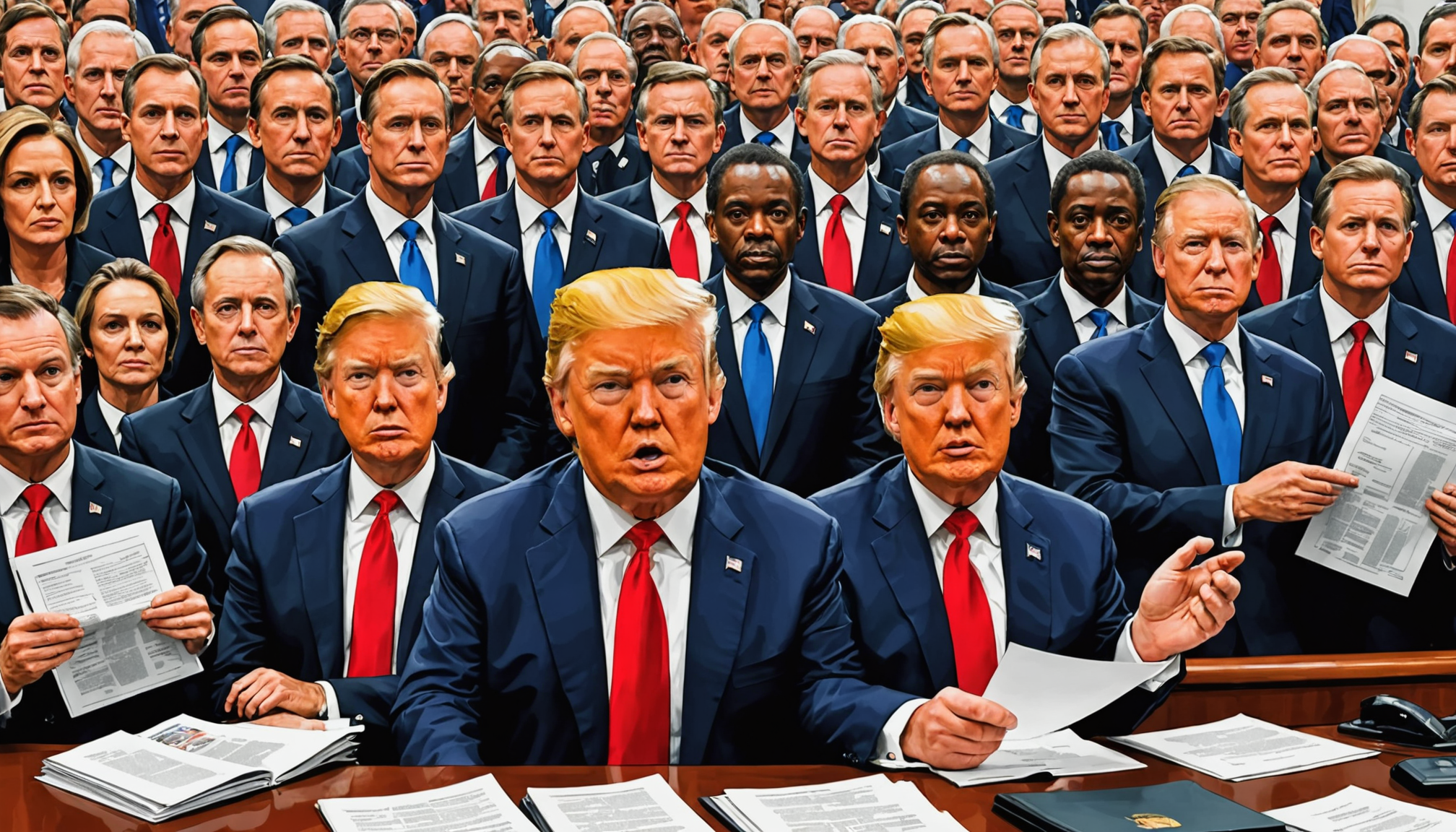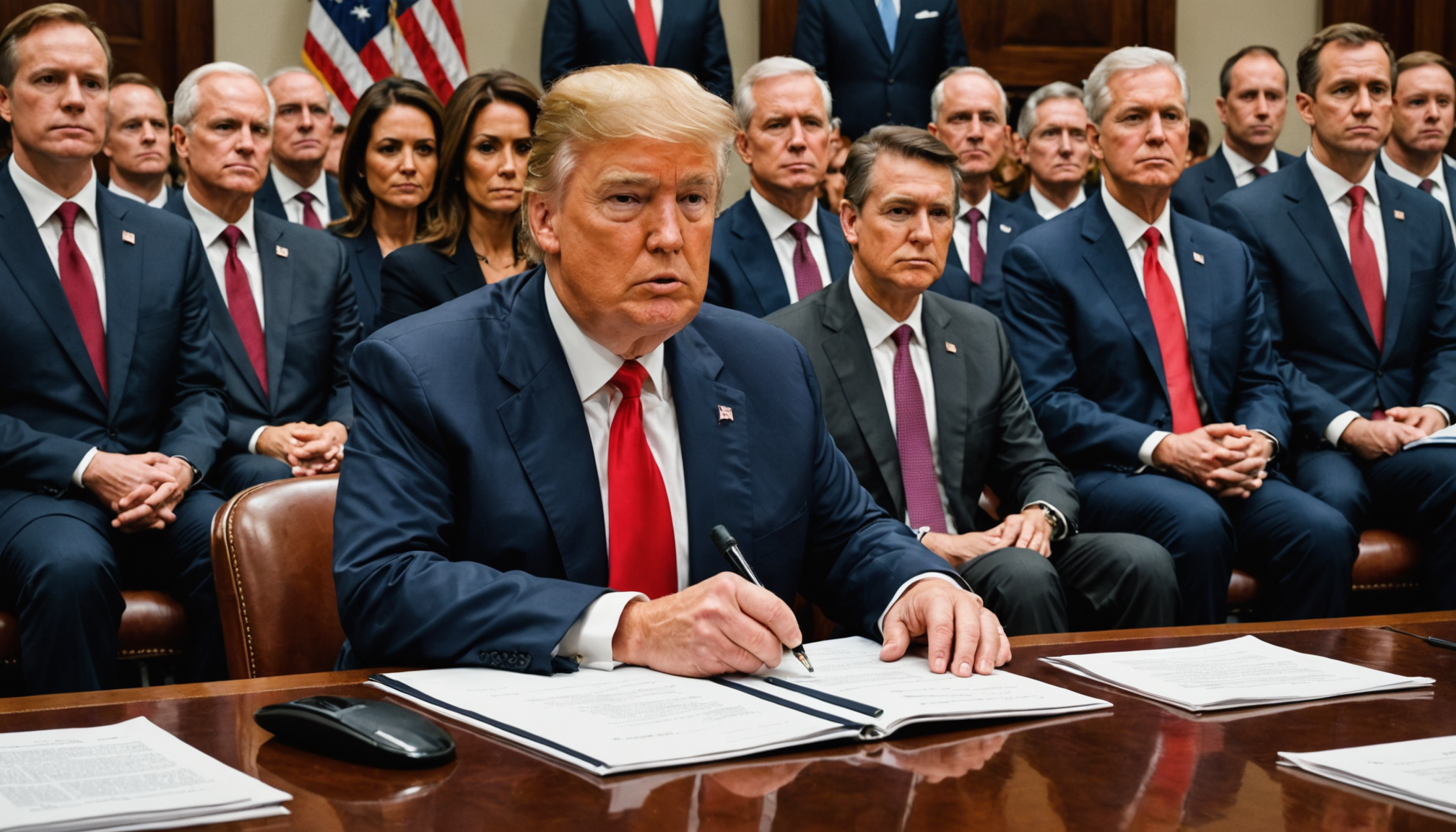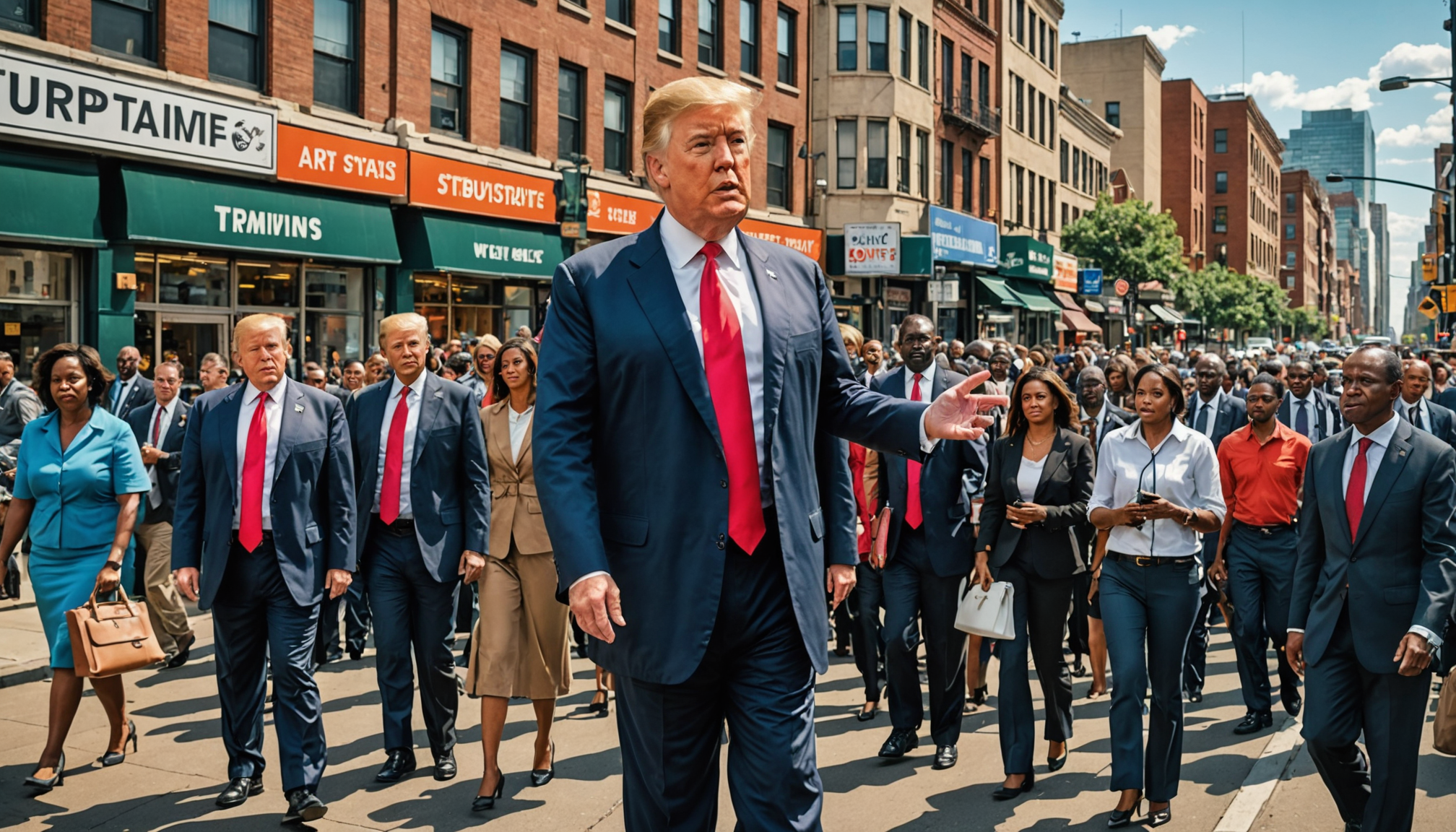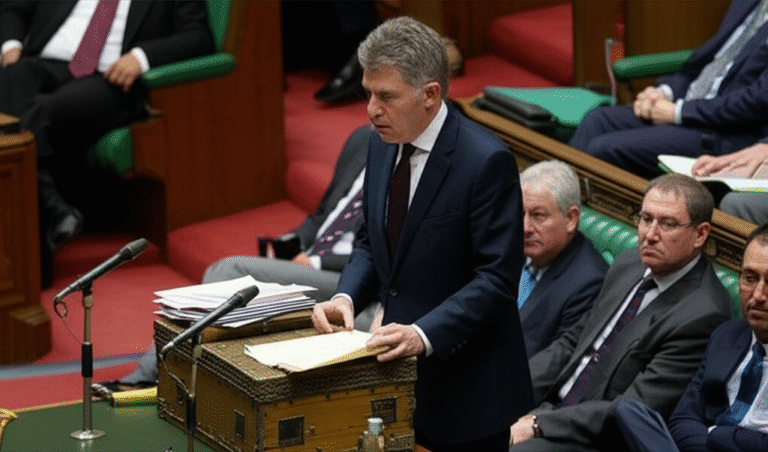
South African investment managers have raised significant concerns about Donald Trump’s proposed tariffs, warning that these protectionist policies could ultimately harm the US economy rather than strengthen it. As global markets brace for potential trade disruptions, financial experts from South Africa offer a unique perspective on how these tariffs might play out on the world stage and eventually impact American consumers.

Trump’s campaign has centered around promises of steep tariffs on imported goods, including a potential 60% tariff on Chinese imports and at least 10% on all other countries. These policies, aimed at protecting domestic industries, could trigger inflationary pressures and supply chain disruptions that would ripple across global markets. [Source](https://www.news24.com/business/money/the-wolf-will-show-up-sa-invest-managers-on-how-tariffs-may-hit-the-us-20250914-0631)
The Wolf at the Door: Inflation Concerns
South African investment managers have used stark metaphors to describe the potential consequences of Trump’s tariff plans. “The wolf will show up,” warned one prominent South African fund manager, referring to the inevitable economic consequences of protectionist policies. This colorful warning underscores a serious concern: tariffs typically lead to higher prices for domestic consumers.
Economic analysts point out that tariffs act as a tax on imported goods, with the financial burden ultimately falling on American consumers rather than foreign producers. As prices rise for imported products, domestically produced alternatives can also increase their prices due to reduced competition, creating a double inflationary effect.
- Trump has proposed up to 60% tariffs on Chinese imports
- General tariffs of at least 10% on all other countries
- South African analysts predict significant inflation in the US
- Supply chain disruptions could exacerbate economic challenges
- Retaliatory tariffs from other nations could further complicate global trade
South African Perspective on Global Trade Dynamics
Investment managers from South Africa bring a valuable perspective as representatives of an emerging market economy that relies heavily on international trade. Their concerns highlight how protectionist policies can have far-reaching consequences beyond the borders of the implementing nation.
“What we’re seeing is a fundamental misunderstanding of how global trade benefits all participants,” explains a senior economist at one of South Africa’s largest investment firms. “Tariffs may create short-term advantages for some domestic industries, but the long-term consequences often include higher consumer prices and reduced economic efficiency.”
“The American consumer will ultimately bear the cost of these tariffs. It’s not China or Europe who will pay, despite political rhetoric suggesting otherwise. This basic economic reality cannot be circumvented,” said Dr. Thabo Mthembu, Chief Investment Officer at a leading South African asset management firm.
South African financial experts also note that emerging markets like their own could face significant challenges if a trade war erupts between major economies. As smaller players in the global economy, countries like South Africa often suffer disproportionately when trade barriers rise globally.
Historical Lessons from Previous Trade Wars
The warnings from South African investment managers draw on historical precedents. Previous attempts at protectionist policies, including tariffs implemented during the Trump administration’s first term, yielded mixed results at best and outright economic damage at worst.
Studies have shown that the 2018-2019 trade tensions between the US and China resulted in higher prices for American consumers, job losses in certain sectors, and retaliatory measures that hurt US exporters. Agricultural producers were particularly affected, necessitating government bailouts to offset lost export opportunities.
South African analysts point to these recent experiences as evidence that new, more aggressive tariffs would likely amplify these negative outcomes rather than deliver the economic benefits promised to American voters.
Background
The debate over tariffs has been a recurring theme in American economic policy for centuries, but has gained renewed prominence in recent years. The Trump administration’s first term featured significant trade conflicts, particularly with China, resulting in a series of tariffs and counter-tariffs that disrupted global supply chains.
While some manufacturing sectors in the US reported benefits from reduced foreign competition, many economists concluded that the overall impact on the American economy was negative. Studies from the Federal Reserve and various economic research institutions found that the tariffs led to higher prices for consumers, job losses in industries dependent on imported components, and minimal reshoring of manufacturing.
South African investment managers have observed these developments closely, as their own economy was caught in the crossfire of these trade tensions. As an export-oriented economy with significant mining and agricultural sectors, South Africa is particularly vulnerable to disruptions in global trade patterns.

Potential Impact on Financial Markets
Beyond the direct effects on trade and inflation, South African analysts are concerned about how tariffs might impact global financial markets. The uncertainty created by trade tensions typically leads to market volatility, affecting investment portfolios worldwide.
“Investors hate uncertainty, and a new round of tariffs would create precisely that,” notes a portfolio manager at one of Johannesburg’s largest investment firms. “We’re already seeing market participants trying to position themselves for potential disruptions, which creates its own form of instability.”
The interconnected nature of global markets means that policies implemented in the United States have outsized effects worldwide. South African investment managers are particularly attentive to how currency markets might react, as the rand is sensitive to shifts in global risk sentiment.
Some analysts suggest that certain sectors might benefit from trade disruptions, creating investment opportunities amid the challenges. Companies involved in domestic US production of goods currently imported from China, for instance, could see their prospects improve under a high-tariff environment.
The Federal Reserve’s Dilemma
South African investment managers also highlight the dilemma that tariffs would create for the Federal Reserve. If tariffs lead to higher inflation, the Fed might feel compelled to maintain higher interest rates to control price increases, potentially slowing economic growth.
“It’s a difficult balancing act,” explains a macroeconomic analyst based in Cape Town. “The Fed wants to bring inflation down and eventually reduce interest rates, but tariff-induced price increases would complicate that goal considerably.”
This monetary policy challenge could have global implications, as Federal Reserve decisions influence interest rates worldwide. For emerging markets like South Africa, higher US interest rates typically lead to capital outflows and currency depreciation, creating additional economic challenges.
What’s Next

As the US political landscape continues to evolve, South African investment managers are closely monitoring developments and preparing for various scenarios. Many are advising their clients to diversify investments globally to mitigate potential risks from trade disruptions.
If aggressive tariffs are implemented, experts anticipate several phases of market reaction: initial volatility as markets process the changes, followed by price adjustments across various sectors, and eventually strategic realignments of global supply chains to adapt to the new trade environment.
Some South African analysts suggest that while short-term disruptions are likely, the global economy has demonstrated remarkable adaptability to trade challenges in the past. New trade patterns could emerge, potentially creating opportunities for countries positioned to serve as alternative suppliers to markets affected by tariffs.
Financial experts emphasize that investors should focus on long-term economic fundamentals rather than short-term market reactions to political developments. While tariffs may create temporary distortions, the underlying productivity and innovation that drive economic growth remain the most important factors for long-term investment success.
As one South African fund manager concluded, “The wolf may indeed show up at America’s door, but the global economy will ultimately find new paths forward. Our job as investment managers is to help our clients navigate through this uncertainty with clear-eyed analysis rather than political rhetoric.”






